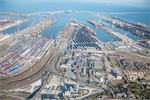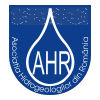ABOUT GRAUA
Urbanisation greatly modifies the ‘groundwater cycle’, with some benefits but many threats (Foster et al., 1994). Urbanisation and associated industrialisation usually have a marked impact on aquifers underlying cities and in turn man-made modifications to the groundwater regime can have equally serious impacts on urban infrastructure (Foster et al., 1998; Howard, 2007).
In general terms, urbanisation interacts with groundwater by:
• Modifying recharge mechanisms and generally increasing recharge rates;
• Increasing contaminant load resulting from in-situ sanitation, sewer leakage, and wastewater irrigation reuse;
• Draining shallow unconfined aquifers by introducing deep drains to protect underground infrastructure (Wolf et al., 2006).
Coastal cities need to be treated as a special case, because of the risk of saline groundwater intrusion and groundwater abstraction inducing land subsidence and aggravating tidal-flooding.
Groundwater pollution surveys and risk assessments should be commissioned by the public health, environmental, or water resource agencies, in close liaison with water service utilities, using recommended protocols (Foster et al, 2002/2007).
Objectives of the conference are: to provide a forum for exchange of scientific knowledge; to discuss the entire policy cycle for water management in urban areas; to intensify contacts between scientists, water managers and policy makers.


